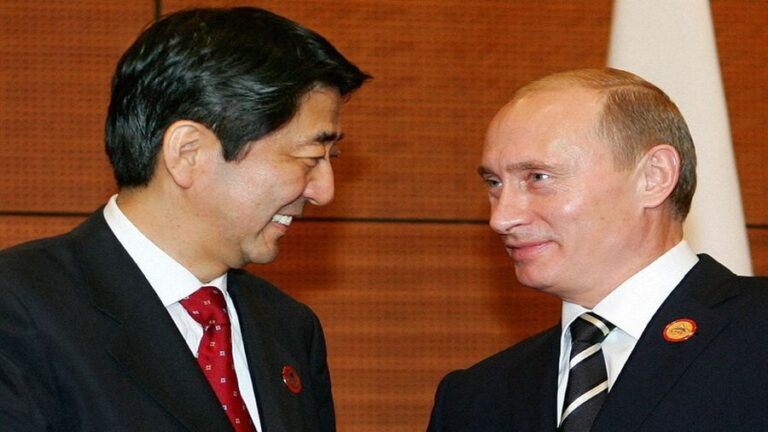Indonesia Will Ultimately Have to Decide Which Military Side It’s on in the New Cold War
One way or another, whichever decision it makes will be zero-sum. Indonesia will either risk creating the pretext for China to potentially react through economic means to newfound AUKUS-led regional security threats “passively facilitated” by that archipelago or it’ll literally place itself in the military crosshairs of that anti-Chinese alliance’s contingency planning.
The emerging powers that are expected to rise across the present “Age of Complex” will aspire to pragmatically balance between the US-led West’s Golden Billion and the jointly BRICS– & SCO-led Global South in order to derive maximum benefits from both de facto New Cold War blocs. India has perfected this approach, the details of which can be read about here, but not everyone is capable of following its lead. Indonesia is the most important of those states that’ll be forced into making a zero-sum choice.
To explain, the world’s most populous Muslim country sits in the center of the Indo-Pacific, which is the region of the world where all the complex processes connected with the global systemic transition to multipolarity are rapidly converging. Its leadership hopes to balance between both New Cold War blocs exactly as India has successfully done, but it’ll be unable to do this due to the external military pressure placed upon it by the declining US hegemon, thus ultimately coercing it into picking a side.
The reason for this is that the US is actively turning Australia into its regional bastion for more aggressively “containing” China in this bi-oceanic region, most notably through AUKUS but also through two other supplementary moves. The first of these predates that alliance and concerns the deployment of US Marines to the Northern Territory’s capital of Darwin while the second involves the Pentagon’s latest plans revealed at the end of October to base nuclear-capable B-52 bombers nearby.
A quick glance at the map shows that neither of these forces could reach the South China Sea, the most likely region where they’d be ordered to “contain” China in the event of a crisis between it and their declining unipolar hegemon, without transiting through Indonesia. Obtusely going around the world’s largest archipelago via Papua New Guinea would neutralize these units’ rapid reaction capabilities, thereby very strongly suggesting that they’ll obviously travel across that vast country to the north.
Therein lies the strategic dilemma since a scholar writing for the US’ National Defense University noted last December that “Indonesia has taken a hard nationalist line on its airspace for years, to the point where it has refused to join regional open skies regimes.” While worrying about how this could complicate his country’s military operations, he also wrote that “Indonesia lacks both the radar network and airpower required to detect, much less intercept, all aircraft above such an enormous area.”
Basically, the US will either obtain military transit rights through Indonesian territory – even if such are agreed to secretly – or it’ll force its way through regardless. That scholar also cited a peer’s work in his piece who wrote that “There may well come a point when the joint force will have to seize key positions along the South China Sea periphery—for example, in the Philippines, Indonesia, or Malaysia—for short durations in order to facilitate operations”, thus adding credence to the second scenario.
Indonesia therefore has to choose whether to militarily ally with the US – even if secretly – or prepare itself for defending against military aggression or other unfriendly acts from that country that would be launched from Australia. It should also be said that Australian-Indonesian relations have been characterized by mutual suspicion despite recent improvements so that obviously doesn’t play in Washington’s favor, yet at the same time, the US could always offer security guarantees to Indonesia.
For instance, in the scenario of clinching a secret military transit deal, America could seek to assure Indonesia that it’ll ensure that Australia doesn’t ever attack it or carry out any unfriendly acts like violating its maritime boundaries. Of course, this proposal remains purely the realm of speculation for now, but it could potentially go a long way towards reaching the desired agreement. That said, Jakarta might also outright reject any such deal too.
The reason for that scenario is self-evident and it’s that Indonesia simply doesn’t trust Australia, let alone that country’s regional intentions if it becomes emboldened enough to unilaterally assert its self-declared interests at its neighbors’ expense – Jakarta’s included – after hosting more US forces. That ASEAN leader’s policymakers might suspect that Washington is seeking to strategically disarm them through false guarantees that it never intends to respect in order to give Canberra a regional edge.
Furthermore, it goes without saying that Indonesia wouldn’t want to be a party to AUKUS’ anti-Chinese regional “containment” plot, yet allowing military transit through its territory for precisely that purpose – especially for nuclear-capable bombers – would result in it playing the same role that it wants to avoid. Jakarta could fear that Beijing might understandably react very negatively to news of any such deal being clinched, perhaps even up to the point of “weaponizing” their existing trade ties.
To be clear, the People’s Republic has consistently denied that it’s ever weaponized any of its mutually beneficial economic relations with anyone nor that it would ever do so no matter what happens in their bilateral ties, yet Indonesia might still be skeptical if it pays any credence to Australia’s allegations. The world’s largest archipelago, which also just so happens to be among the world’s most geostrategically located states, is therefore placed in perhaps one of the world’s worst dilemmas nowadays.
On the one hand, acceding to America’s implied military transit demands – even secretly – could strategically disarm Indonesia by creating a cover for Australian aggression, not to mention endangering its economic security due to the scenario of China “weaponizing” trade ties. On the other hand, however, refusing to agree to this would result in the US prioritizing its contingency planning for seizing Indonesian islands and unilaterally violating its airspace, likely in full coordination with Australia.
In other words, AUKUS and the two supplementary moves connected to it that were earlier described in this analysis place Indonesia in a position where its security is worsened vis a vis Australia regardless of what it does. This observation means that the only practical question is the extent to which it’s comfortable with this state of affairs and whether it’s willing to comparatively mitigate it at the expense of possibility provoking China to “weaponize” its trade ties with Indonesia in response.
One way or another, whichever decision it makes will be zero-sum. Indonesia will either risk creating the pretext for China to potentially react through economic means to newfound AUKUS-led regional security threats “passively facilitated” by that archipelago or it’ll literally place itself in the military crosshairs of that anti-Chinese alliance’s contingency planning. Both have profound consequences for Indonesian grand strategy that make it impossible for Jakarta to follow India’s balancing act in the New Cold War.







